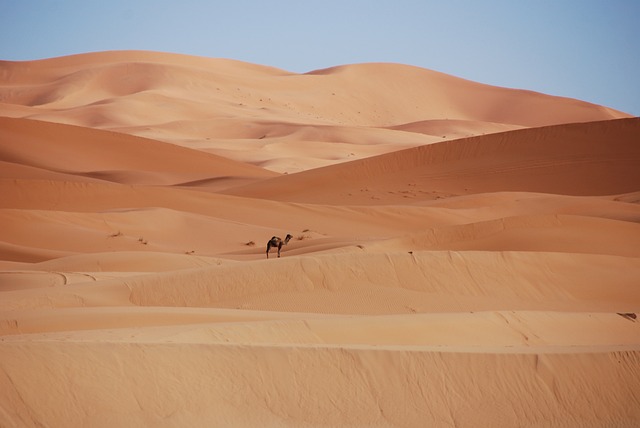A global desert safari offers a cultural journey into the heart of traditional Bedouin communities. By staying in authentic camps, travelers immerse themselves in ancient customs, learn survival skills, and experience warmth and hospitality. From stargazing to camel rides, this blend of cultural immersion and outdoor adventures creates memorable moments while highlighting sustainable tourism practices that preserve desert ecosystems for future generations.
Experience the magic of a traditional Bedouin camp in this immersive global desert safari journey. Delve into the rich cultural tapestry of nomadic life, where ancient customs meet modern hospitality. From setting up authentic campsites to culinary delights and stargazing, explore daily life, activities, and the indispensable role of camels. Understand the environmental impact of these safaris and discover conservation efforts, offering a unique blend of adventure and cultural appreciation in the world’s deserts.
- Understanding the Bedouin Culture: A Global Desert Safari Experience
- The Art of Setting Up a Traditional Campsite
- Daily Life in a Bedouin Camp: Traditions and Customs
- Cuisine and Hospitality: A Culinary Journey in the Desert
- Exploring the Night Sky: Unique Astronomical Observations
- Activities and Entertainment: From Storytelling to Camel Rides
- The Role of Camels in Bedouin Lifestyle and Economy
- Environmental Impact and Conservation Efforts in Global Desert Safaris
Understanding the Bedouin Culture: A Global Desert Safari Experience
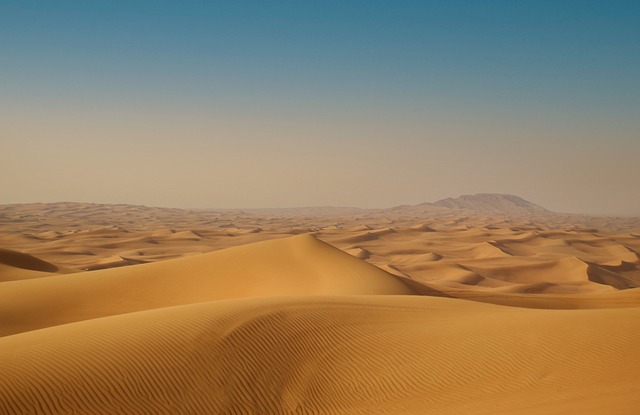
Embarking on a traditional Bedouin camp experience is more than just a holiday; it’s an immersive cultural journey into one of the world’s oldest and most resilient communities. The Bedouin, known for their nomadic way of life across deserts from the Middle East to North Africa, have shaped their existence around the harshest environments, developing unique customs and traditions that offer a fascinating glimpse into their heritage.
A global desert safari allows travelers to connect with this rich cultural tapestry. During these safaris, visitors often spend nights in authentic Bedouin camps, experiencing firsthand the warmth of communal living under the starry desert sky. Local hosts share stories of their ancestral bonds to the land, culinary traditions passed down through generations, and insights into their intricate knowledge of desert survival and navigation. This exchange fosters a deeper understanding and appreciation for the Bedouin way of life, making it a memorable highlight for travelers seeking authentic cultural immersion in the heart of some of our planet’s most breathtaking deserts.
The Art of Setting Up a Traditional Campsite
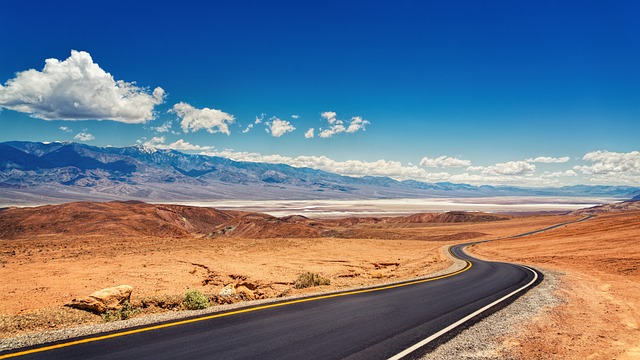
In the heart of a global desert safari, setting up a traditional Bedouin camp is an art that has been honed over centuries. The process begins with choosing the perfect location—a spot offering both breathtaking views and access to essential resources like water and shade-bearing trees. Bedouins are masters of adaptability, carefully selecting sites that cater to their unique needs and ensure comfort amidst the desert’s challenges.
Once the ideal place is identified, the camp setup commences. Tents, usually made from lightweight yet durable fabrics, are pitched with precision, ensuring they provide a safe haven from the desert’s elements. Traditional Bedouin camps often feature a central gathering area where families and travelers alike can share stories around a warm fire under a sky awash with stars. This communal space is not just functional but also a testament to the hospitality and camaraderie that define the Bedouin way of life.
Daily Life in a Bedouin Camp: Traditions and Customs
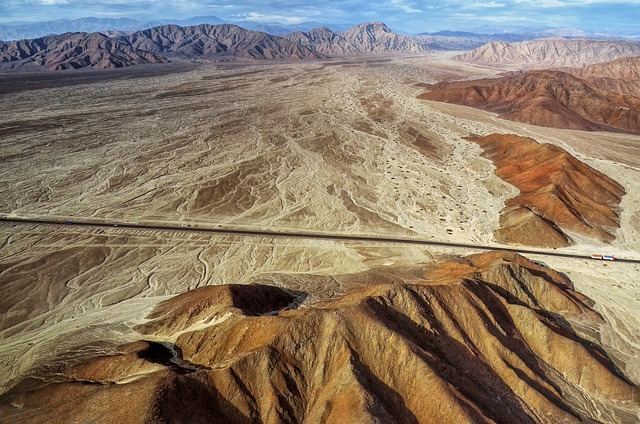
In a traditional Bedouin camp, daily life is steeped in rich cultural heritage and customs that have been passed down through generations. The Bedouins are known for their nomadic lifestyle, moving from one location to another depending on the availability of water and grazing land for their livestock. This way of life is deeply intertwined with respect for nature and a strong sense of community. Each member of the camp has specific roles and responsibilities, fostering a cooperative environment where everyone contributes to the well-being of the group.
The global desert safari experience offers a unique opportunity to observe these traditions up close. Daily routines may include preparing traditional meals over an open fire, telling stories and singing under the starlit sky, and engaging in ancient arts like weaving and metalworking. Hospitality is a cornerstone of Bedouin culture, with guests often being welcomed with warm tea and shared meals. This genuine connection to the land and each other creates a profound sense of belonging, making a global desert safari not just a trip, but an immersive cultural experience.
Cuisine and Hospitality: A Culinary Journey in the Desert

In a traditional Bedouin camp, the cuisine and hospitality are the heart of the experience, offering a unique culinary journey for visitors to the global desert safari. The meals are prepared using age-old methods and local ingredients, reflecting the rich cultural heritage of the region. Guests can expect a warm welcome with dates, tea, and fresh bread, setting the tone for an authentic exchange that goes beyond mere tourism.
The Bedouin cuisine is characterized by its simplicity and freshness, featuring dishes like mansaf (a lamb stew cooked in yogurt) and machboos (rice cooked with meat and spices). These meals are not just flavorsome but also nutritious, reflecting the nomadic lifestyle of the Bedouin people. The camp’s hosts take pride in sharing their culinary traditions, inviting guests to sit and enjoy meals together, fostering a sense of community and connection that makes for an unforgettable desert safari experience.
Exploring the Night Sky: Unique Astronomical Observations
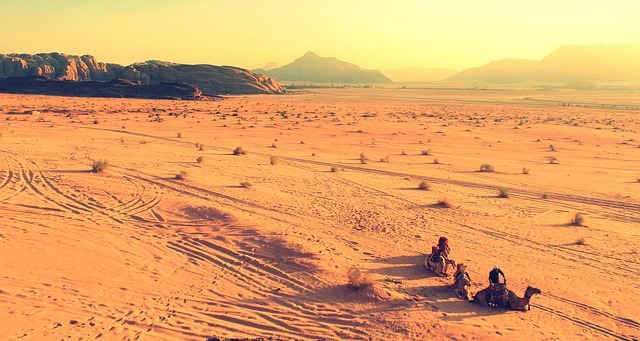
In a traditional Bedouin camp, experiencing the night sky is like no other. Away from the light pollution of modern cities, guests on a global desert safari are treated to a spectacle that highlights the beauty and vastness of the universe. The open canvas of the desert sky offers a unique perspective for stargazing, where constellations come alive in a way never seen before.
Bedouin communities have long been known for their astronomical knowledge, passed down through generations. They point out the brightest stars and share stories about various celestial bodies, offering a cultural insight into how these people have harmonized with nature. This authentic experience allows visitors to connect with ancient traditions and appreciate the profound relationship between the Bedouin way of life and the cosmos, making it a memorable highlight during any desert safari adventure.
Activities and Entertainment: From Storytelling to Camel Rides
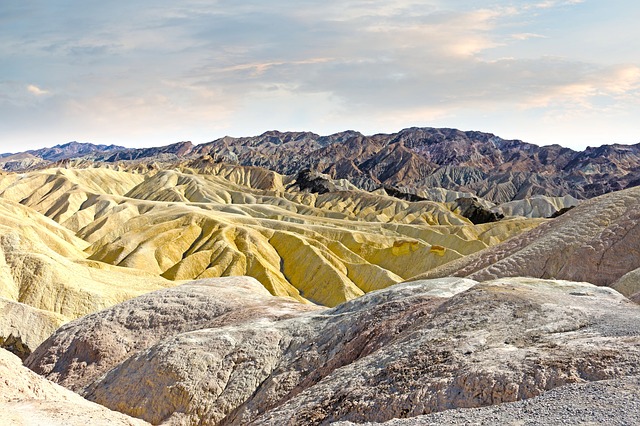
In a traditional Bedouin camp, guests are immersed in an authentic Arabian experience that goes beyond mere relaxation. Evenings are often filled with captivating storytelling sessions where locals share ancient tales and legends passed down through generations. This is a unique opportunity to delve into the rich cultural heritage of the region. For adventurous spirits, camel rides are a must-try activity during a global desert safari. Trekking across the vast sands on these gentle giants offers a once-in-a-lifetime perspective of the desert landscape and a chance to bond with these majestic creatures.
Beyond these highlights, various other forms of entertainment and activities await. Guests can learn about traditional Bedouin crafts, such as weaving and silverwork, from skilled artisans. Musical performances and belly dancing shows add a vibrant touch to the camp atmosphere, while guided hikes through nearby oases allow visitors to explore the natural beauty that surrounds them. These diverse offerings ensure that every moment in a traditional Bedouin camp is memorable, blending cultural immersion with thrilling outdoor adventures.
The Role of Camels in Bedouin Lifestyle and Economy

Camels are integral to the traditional Bedouin lifestyle, playing a multifaceted role in their daily lives and economy. Often referred to as the ‘ship of the desert’, camels are reliable beasts of burden, capable of traversing rugged terrain with ease. They serve as a means of transportation for people and goods, enabling Bedouins to travel across vast distances in search of water and grazing lands. Furthermore, camels are a significant economic asset, providing wool for weaving traditional Bedouin garments and milk for sustenance.
In the context of global desert safaris, experiencing a traditional Bedouin camp offers a unique window into this rich cultural heritage. Visitors can witness firsthand the skilled handling of camels by Bedouin herders and gain an appreciation for these animals’ immense value in shaping the region’s economy and way of life.
Environmental Impact and Conservation Efforts in Global Desert Safaris

The rise in popularity of global desert safaris has brought both benefits and challenges for the environment. As more travelers seek unique experiences in vast desert landscapes, conservation efforts are crucial to preserving the delicate ecosystems within these regions. One key aspect is ensuring sustainable practices among tour operators and visitors. This includes responsible waste management, minimizing water usage, and respecting native flora and fauna. Many Bedouin communities, known for their traditional ways of life, are at the forefront of these initiatives. They share their extensive knowledge of the desert environment, promoting eco-friendly tourism that supports local economies while preserving natural resources.
Global desert safaris offer a chance to connect with nature, but it’s essential to balance this experience with conservation. By adopting sustainable practices and supporting community-led initiatives, visitors can contribute to the long-term health of these fragile ecosystems. This collaboration ensures that future generations can also enjoy the allure of the desert while respecting its preservation.
A traditional Bedouin camp experience offers a unique glimpse into the rich cultural heritage and resilient lifestyle of these global desert dwellers. By understanding their customs, participating in daily routines, and appreciating their hospitality, visitors can embark on a transformative journey through the vast expanses of the desert. This authentic encounter not only fosters cultural exchange but also promotes environmental conservation efforts, ensuring that the Bedouin way of life and the breathtaking landscapes they inhabit thrive for generations to come. Embrace the magic of a global desert safari and witness firsthand the indelible impact it can have on both travelers and local communities.
